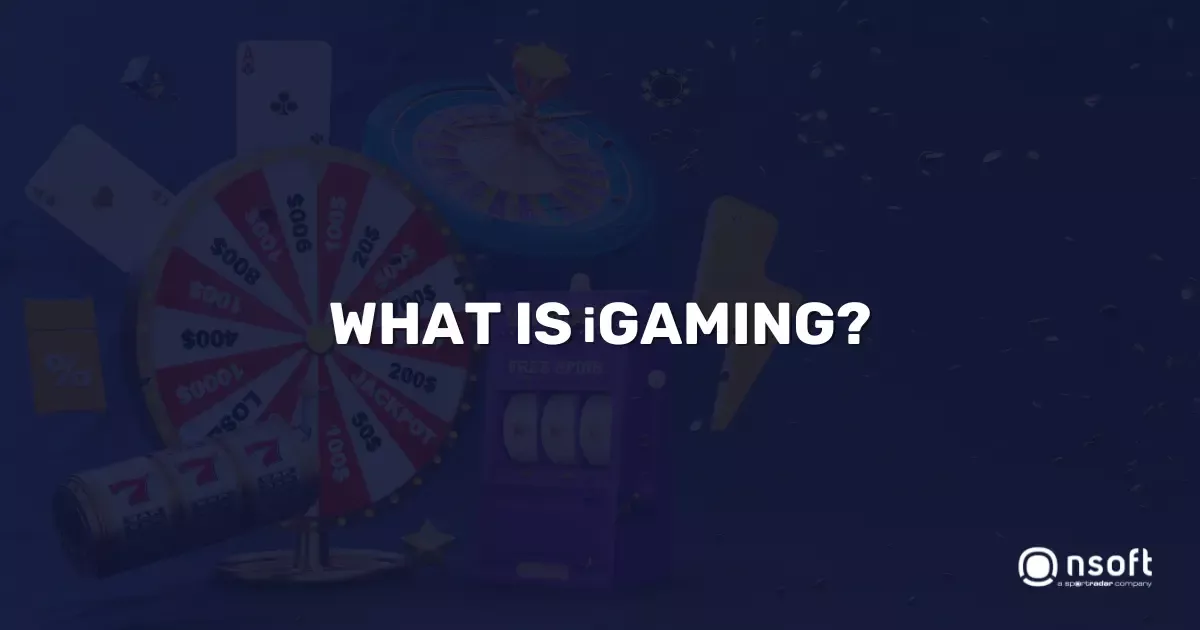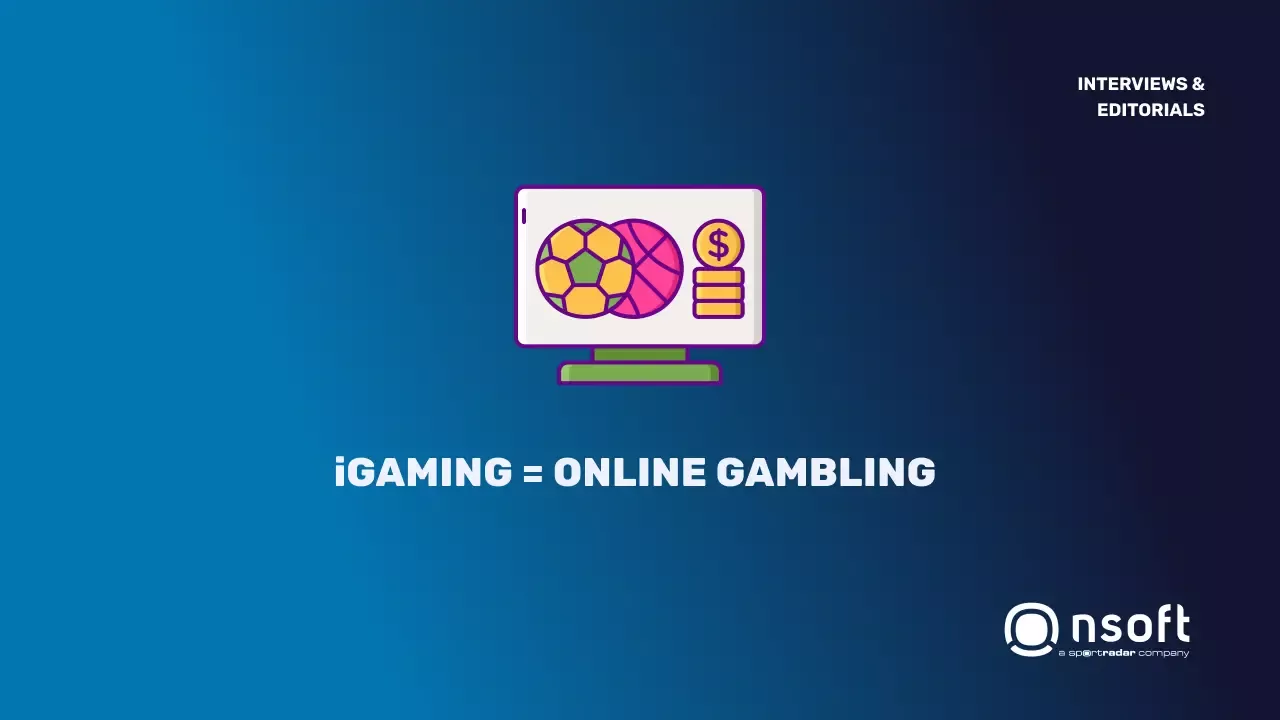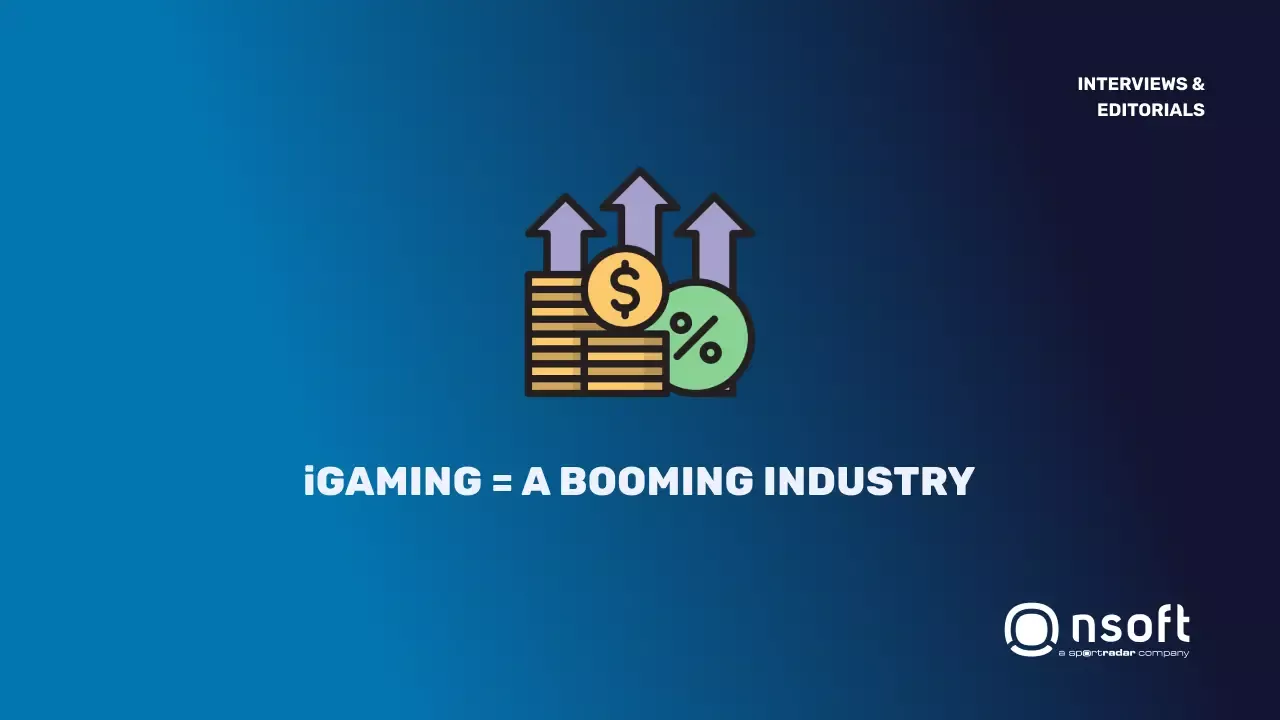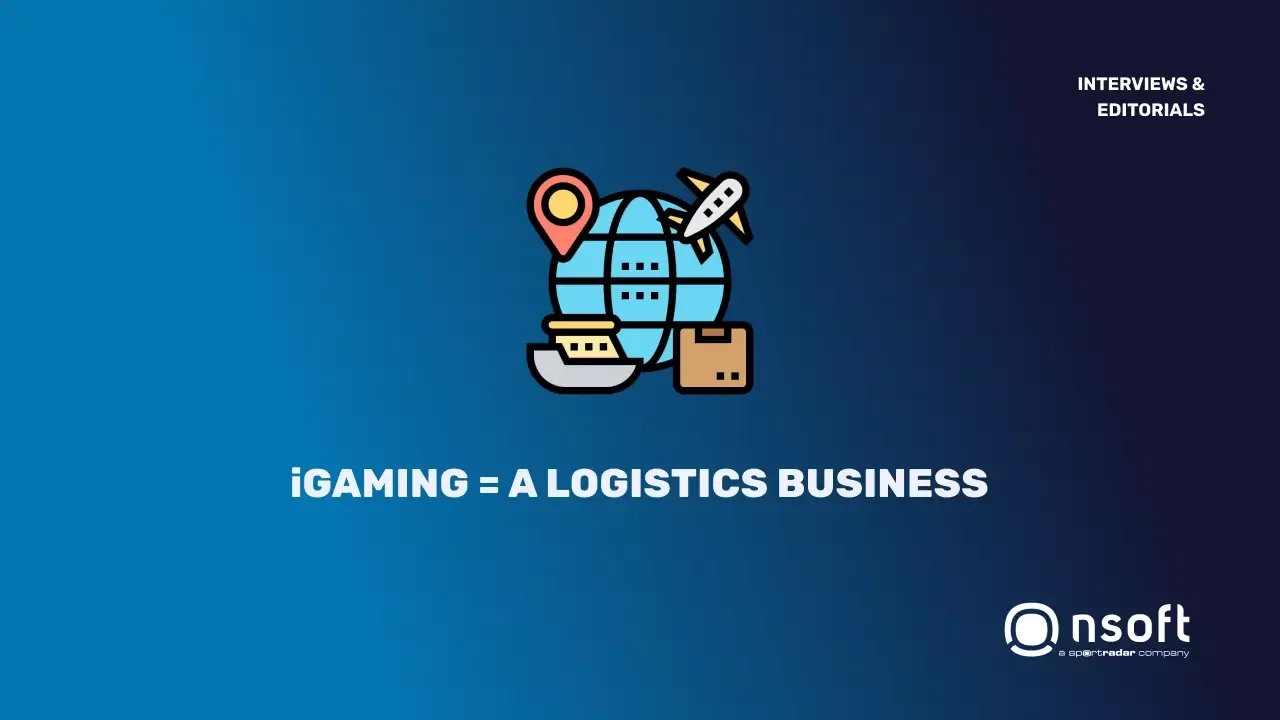Interviews et Éditoriaux
Qu'est-ce que l'iGaming ? Des Sportsbooks aux Machines à Sous en Ligne — Voici Tout ce que Vous Devez Savoir

Allons droit au but : l’iGaming, c’est le jeu d’argent en ligne. Que vous misiez sur une roulette virtuelle ou que vous fassiez tourner les rouleaux d’une machine à sous digitale, si ça se passe sur internet et implique de l’argent réel, c’est de l’iGaming.
La première plateforme de jeux d’argent en ligne, la loterie internationale du Liechtenstein, remonte à 1994. Aujourd’hui ? C’est une machine mondiale, active 24h/24, alimentée par des plateformes, des systèmes de paiement et des solutions technologiques qui permettent de jouer où et quand on veut. Voici une vue d’ensemble.
iGaming et Gaming : Est-ce la Même Chose ? #

Pas vraiment. Voici la distinction : l’iGaming implique le jeu d’argent — de l’argent réel, de vrais enjeux. Le gaming classique ? C’est plutôt Mario Kart ou Minecraft — sans argent en jeu (à moins que vous comptiez les skins payants, mais c’est une autre histoire).
Certes, il y a des similitudes : des expériences immersives et une compétition entre joueurs. Mais l’iGaming va un cran plus loin : ici, on mise son argent.
iGaming en Sens Restreint : Parier en Un Clic #
À sa base, l’iGaming, c’est parier en ligne. Vous choisissez votre jeu — machines à sous, bingo, ce que vous voulez — et vous misez. Si vous gagnez, vous encaissez ; sinon, il y aura toujours une autre partie.
Mais si parier en ligne est le jeu, alors l’iGaming est le terrain de jeu complet : casinos en ligne, paris sportifs, sports fantasy, eSports, loteries… Si vous pouvez miser dessus via internet, ça compte.
Pour les joueurs, c’est simple : connectez-vous, déposez des fonds, pariez, et voyez ce qui se passe. Mais derrière cette interface lisse, un énorme système garantit que tout fonctionne correctement.
Ayant travaillé en profondeur dans ce domaine, je peux vous dire que ce n’est pas une mince affaire de gérer la technologie, les paiements et la conformité pour offrir aux joueurs une expérience fluide, sans bugs.
Jeux de Hasard vs. Jeux d’Adresse : Un Débat Éternel #
Voici un sujet qui suscite débat. Traditionnellement, l’iGaming est axé sur les jeux de hasard : machines à sous, roulette, bingo, où c’est la chance (ou un générateur de nombres aléatoires) qui décide du résultat. Vous appuyez sur un bouton et attendez les résultats. Simple, addictif, et facile à mettre en place pour les opérateurs.
Mais il y a une autre dimension dans l’iGaming : les jeux d’adresse. Le poker ou le blackjack, par exemple, sont plus basés sur les compétences que sur la chance. Alors, ces jeux ont-ils vraiment leur place dans l’iGaming ? Mon avis ? Peu importe. Si les joueurs misent de l’argent réel en ligne, alors ça fait partie de l’iGaming.
L’essentiel, c’est que les opérateurs performants ont les deux types. Les jeux de hasard apportent un revenu rapide avec des cycles courts et des frais moindres, tandis que les jeux d’adresse fidélisent les joueurs à long terme, qui dépensent davantage avec le temps. Ignorer l’un de ces types, c’est laisser de l’argent de côté.
L’iGaming : Une Industrie Complète #

L’iGaming, ce n’est pas seulement des paris sur une application mobile, un site ou un terminal. Ce que les joueurs voient, c’est le côté glamour. Derrière ? L’iGaming est une affaire de logistique, de gestion de données et de technologie. Pour un aperçu approfondi de tous les aspects de cette industrie, consultez notre analyse détaillée ici.
Voyons maintenant les acteurs clés qui rendent tout cela possible.
Qui Sont les Acteurs de l’iGaming ? #
Opérateurs
On commence par les noms que vous connaissez sûrement : Bet365, DraftKings, etc. Pour un joueur occasionnel, ce sont juste des sites avec des jeux et des options de pari.
En coulisses ? C’est une machine qui gère vos mises, vos données, votre argent, et une montagne de paperasse légale dans chaque pays où ils opèrent. Sans oublier le support client, qui gère tout, des paris manquants aux utilisateurs qui ont oublié leur mot de passe pour la énième fois. Faire fonctionner tout cela en continu demande une véritable puissance technologique.
Vous voulez savoir ce que cela implique ? Consultez le guide de mon collègue Dražan Planinić sur le démarrage d'une entreprise de paris en ligne — cela vous donnera une toute nouvelle perspective sur ce qu’il faut pour que ces sites fonctionnent.
Fournisseurs de Jeux
Les fournisseurs de jeux sont un peu les créateurs de contenu de l’iGaming. Ce sont eux qui développent les machines à sous clinquantes et les jeux immersifs qui accrochent les joueurs. Il y a les généralistes comme Sportradar, Betconstruct, Digitain, et nous chez NSoft, qui gérons tout, du concept de jeu à sa distribution.
Ensuite, il y a les spécialistes comme NetEnt, Pragmatic Play et Microgaming — les pionniers qui ont lancé le premier casino en ligne dans les années 90 ! — qui se concentrent uniquement sur des jeux populaires.
Les agrégateurs comme BlueOcean et Slotegrator facilitent l’accès des opérateurs à ces jeux sans les alourdir avec des contrats individuels avec chaque fournisseur. C’est comme avoir Netflix pour les casinos.
Fournisseurs de Flux
Sans les fournisseurs de flux, les paris en direct et les sportsbooks n’existeraient même pas. Des sociétés comme Sportradar (qui détient majoritairement NSoft) garantissent que les plateformes reçoivent des données en temps réel via des API intégrées.
Ce score de tennis en direct que vous suivez ? Ce dernier ajustement de cote de dernière minute ? Tout ça est alimenté directement à votre application depuis la source. Sans eux, vous miseriez sur des rediffusions.

Gérer un sportsbook, c’est un peu plus compliqué que de publier des cotes et prendre des paris. Les opérateurs ont besoin d’une technologie spécialisée capable de gérer les mises à jour en direct, la gestion des risques, et de rester en ligne lorsque tout le monde s’enthousiasme pour ce but de dernière minute.
C’est là que les fournisseurs de sportsbooks entrent en jeu. Des entreprises comme Kambi et Openbet se concentrent exclusivement sur les solutions de sportsbooks, bien que cela devienne rare. La plupart, comme NSoft, proposent des packages complets avec casino, sports virtuels, etc., permettant aux opérateurs de tout gérer depuis une seule plateforme. Plus il y en a, mieux c’est, non ?
Fournisseurs de Plateformes
C’est là que ça devient sérieux. Les opérateurs ont besoin de plateformes pour tout gérer : les paiements, les jeux, les comptes de joueurs, et plus encore. C’est là qu’interviennent des fournisseurs de plateformes comme Comtrade, Softswiss, EveryMatrix, et nous chez NSoft.
Nous créons les systèmes de backend qui font fonctionner les parties moins glamour mais essentielles d’une entreprise d’iGaming, pour que les joueurs puissent parier depuis leur téléphone, tablette ou ordinateur sans problème.
Si les opérateurs veulent augmenter leur capacité, pas de souci — la plateforme s’adapte. Et quand un opérateur devient assez grand — comme Bet365 — il crée généralement sa propre plateforme pour garder le contrôle total. Mais pour la majorité, externaliser aux pros est plus intelligent (et plus rapide).
Processeurs de Paiements
Personne ne reste si son argent est bloqué en attente. C’est pourquoi des entreprises comme Skrill, Okto, et iPay sont essentielles. Les processeurs de paiement garantissent que les dépôts sont instantanés et les retraits rapides.
Dès qu’un joueur clique sur « retirer », ils s’y mettent — vérification, contrôle contre la fraude, et conformité avec les régulations locales. C’est rapide, sécurisé, et cela satisfait à la fois l’opérateur et le joueur.
Affiliés
Vous avez déjà vu les listes « Top 10 des casinos en ligne » sur Google ? C’est du marketing d’affiliation. Des entreprises comme Catena Media dirigent le trafic vers les sites de jeux en comparant les bonus, en rédigeant des critiques, et en optimisant le SEO.
Les affiliés sont un peu les ambassadeurs de l’iGaming, attirant de nouveaux joueurs vers les opérateurs, qui peuvent ensuite se concentrer sur leur fidélisation. Sans eux, les opérateurs devraient dépenser beaucoup plus pour obtenir de nouvelles inscriptions.
Régulateurs
L’argent fait tourner le monde, mais pas sans surveillance. Voici les régulateurs : que ce soit la UK Gambling Commission ou la Malta Gaming Authority, ces entités veillent à ce que les opérateurs respectent les règles.
Ils ne se contentent pas d’appliquer les normes de jeu équitable, de jeu responsable et de protection des données — ils sont aussi les gardiens de l’accès au marché. Pas de licence, pas d’activité. Et rarement une seule licence : les opérateurs en ont souvent besoin de plusieurs pour gérer une opération d’iGaming en toute légalité.
Croyez-moi, aucun opérateur ne veut se heurter à ces régulateurs. J’ai vu des entreprises essayer de contourner les règles, et spoiler : ça finit mal. Respecter les régulations n’est pas une option si on veut rester en affaires à long terme.
Organisations de Jeu Responsable
L’iGaming, c’est amusant, mais on peut facilement aller trop loin. C’est pourquoi des organisations de jeu responsable comme GambleAware et GamStop existent. Elles œuvrent en coulisses pour que les joueurs puissent contrôler leurs habitudes de jeu et ne tombent pas dans une spirale incontrôlable.
Que ce soit en offrant des outils d’auto-exclusion ou des services de soutien, elles sont là pour que l’iGaming reste un divertissement — pas un problème. De plus en plus, les opérateurs s’associent avec ces organisations parce que, soyons honnêtes, préserver la santé des joueurs est bon pour tout le monde. Personne ne veut être connu comme la plateforme qui laisse les gens perdre le contrôle.
Les « Intermédiaires » de l’iGaming
Tout dans l’iGaming ne rentre pas dans une catégorie précise. On retrouve les experts SEO qui optimisent la visibilité des opérateurs sur Google, des agences de marketing comme Square in the Air qui gèrent les campagnes de marque, et même des équipes juridiques qui s’assurent que tout le monde reste dans les règles.
Il y a aussi le côté médias — des entreprises comme SBC, qui a commencé comme un site d’actualités et organise désormais certains des plus grands événements de l’industrie iGaming. N’oublions pas les génies de la tech derrière la gamification (pensez à VAIX ou Ziqni) et les fournisseurs de CRM comme FastTrack, qui veillent à ce que les joueurs restent engagés.
Ces entreprises ne sont pas toujours sous les projecteurs, mais sans elles, l’industrie ne tournerait pas aussi rond ou ne se développerait pas aussi vite.
Ce Qu’il Faut Retenir #
L’iGaming, c’est le jeu 2.0. Ce qui nécessitait autrefois une sortie au casino se fait aujourd’hui en quelques clics. C’est plus accessible, plus rentable, et ça ne disparaîtra pas. Les opérateurs l’aiment pour sa rentabilité et sa portée mondiale. Les joueurs l’adorent pour sa commodité et ses options infinies. Pas de files d’attente, pas de temps d’attente, juste de l’action 24/7.
Maintenant que vous êtes au point, pourquoi ne pas approfondir ? Consultez notre analyse sur le pari physique pour voir comment le jeu traditionnel et en ligne se comparent.
Tags:
Articles Connexes
Actualités
29.04.2025.
NSoft and InnovaPlay Strategic Partnership
The strategic collaboration integrates NSoft’s innovative sportsbook technology seamlessly into InnovaPlay’s comprehensive white-label and full web solution, empowering sportsbook operators to reach new heights of performance and player engagement.
En savoir plus
Actualités / Interviews et Éditoriaux
16.04.2025.
Beyond the Bet: How Gamification is Reshaping Online Gambling
By making the gamification elements fun, relevant, and optional, you ensure that they enhance the betting experience rather than overshadow it.
By Marko Galić, Game Mathematician & Project Manager at NSoft
En savoir plus
Vous n'avez pas trouvé ce que vous cherchez ?
Notre équipe se fera un plaisir de vous guider à travers nos produits et services.
Contactez-nous